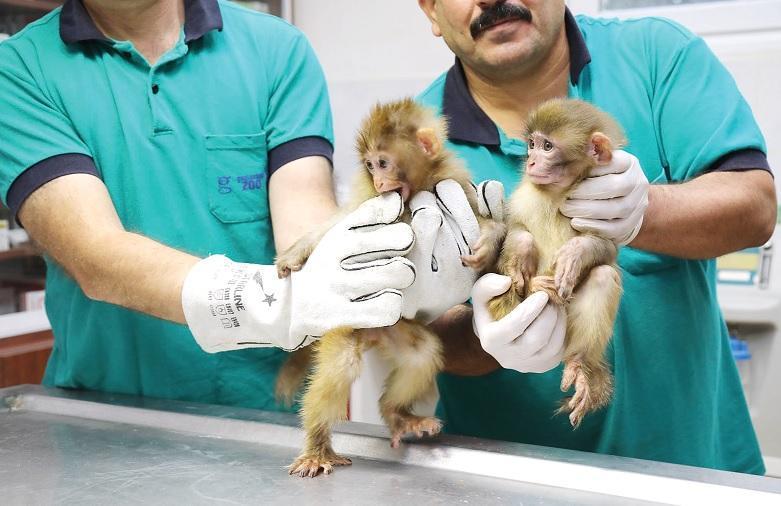
The names of two rhesus monkeys, which were seized by customs guards on the Iraqi border last week, will be determined by visitors of the Gaziantep Zoo.
Officials will place various “name books” across the zoo premises for visitors to indicate their choice of name. After a two-month-long period, the names that get the most vote will be given to the monkeys.
The two rhesus monkeys were found during a search in a car coming into Turkey from Iraq on Oct. 22. In the first instance, they were taken to the emergency service of the wild animal rehabilitation center in the southeastern province of Şırnak. They were later sent to the zoo in the southeastern province of Gaziantep.
Celal Özsöyler, the head of Gaziantep Metropolitan Municipality’s wildlife protection department, said experts’ analysis revealed that the two monkeys were rhesus macaque (Macaca mulatta), one of the best-known species of Old World monkeys. It is listed in the IUCN Red List of Threatened Species in view of its wide distribution, presumed large population and its tolerance of a broad range of habitats. It is native to South, Central, and Southeast Asia and has the widest geographic range of all non-human primates.
Özsöyler said that the monkeys were about 1.5-2 years old, and one was female and the other male. “After they were brought to us, we analyzed their blood and performed lung x-rays. We did all of the check-up procedures. Since the animals were a bit exhausted when they were being taking through the border gate, we took them into the intensive care unit. Here we did the necessary treatments. And now we took them in to a small cage. Here their caretakers are feeding them four-five times a day with fruits, milk and foods that are rich in protein,” he said.
Özsöyler said that wild animals need to be “absolutely” looked after in zoos or in their natural habitats. “It is illegal for them to be looked after at home; there are fines for that,” he said.